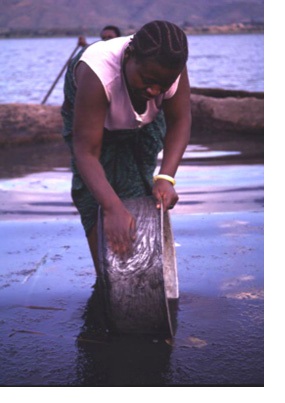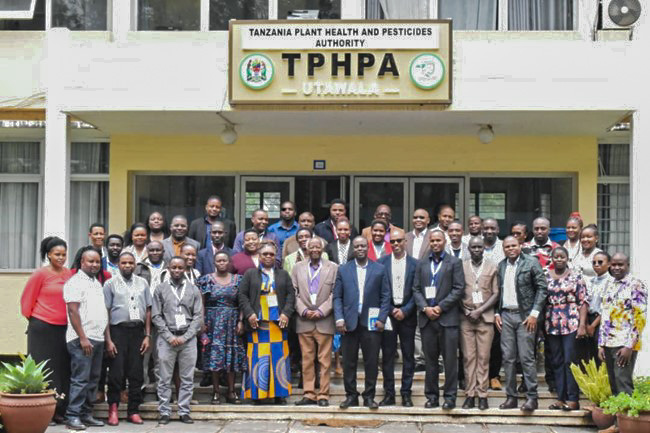TDR, WHO’s Global Neglected Tropical Diseases Programme and the Climate, Health and Environment team at the WHO Regional Office for Africa are supporting four research projects addressing One Health implementation research priorities for vector-borne diseases in the context of climate change in Africa. One of the research projects tackling fascioliasis and schistosomiasis in Rwanda and Tanzania has kicked off implementation with a stakeholder engagement meeting.
Over a one-year period, the four research projects will engage and coordinate stakeholders across the
health, environmental and other relevant sectors in Africa to influence integrated policies, research and action plans. A One Health approach will be applied to generate evidence that informs the linkages between vector-borne diseases, climate
change and the environment, to address research gaps present through the application of innovative technologies and study designs and to build capacity to enhance both technical and human resources.
 One of these four proposals -- One Health approach to controlling and understanding the dynamics of fascioliasis and schistosomiasis in the context of climate change in Rwanda and Tanzania -- is
led by the Kilimanjaro Clinical Research Institute (KCRI), Tanzania Plant Health and Pesticides Authority (TPHPA) and the University of Rwanda.
One of these four proposals -- One Health approach to controlling and understanding the dynamics of fascioliasis and schistosomiasis in the context of climate change in Rwanda and Tanzania -- is
led by the Kilimanjaro Clinical Research Institute (KCRI), Tanzania Plant Health and Pesticides Authority (TPHPA) and the University of Rwanda.
Snail-borne infections known as schistosomiasis and fascioliasis, endemic to Tanzania and Rwanda, are both important neglected tropical diseases resulting in severe morbidity in sub-Saharan Africa and significant economic losses through livestock affected. This project will take a multidisciplinary, participatory One Health approach in developing and implementing vector control strategies and managing and preventing transmission of schistosomiasis and fascioliasis. Climate change will be an important consideration along with other environmental factors in understanding the disease dynamics.
Photo: Schistosomiasis in United Republic of Tanzania (credit: TDR / Andy Craggs)
Study Design
A cross-sectional study will estimate point prevalence of schistosomiasis and fascioliasis from the human population, including high-risk communities and abattoir animals. Matching point prevalence estimates in human and livestock populations will help assess transmission.
Snail sampling will be carried out to gain an estimate of the snail-vector population densities and vector species. Correlation with new and retrospective meteorological data over the last 10 years will then provide insight into the effect of climate change on the vector population. Species abundance and distribution by habitats, topography and season will also be mapped out.
Taking the first step towards project implementation
To initiate engagement and kickstart the implementation phase, a stakeholder engagement meeting was held in May 2023 at the Tanzania Plant Health and Pesticides Authority (TPHPA). This meeting brought together researchers, professionals and health officials from across sectors in both Tanzania and Rwanda, including laboratory scientists, district medical officers and doctors, a district veterinary officer, veterinary lab technicians, a climate change consultant and representatives from Tanzania’s Ministry of Health. This inclusive participatory multistakeholder approach will be maintained throughout the project to facilitate informed inclusive decision-making that benefits even the most vulnerable sections of the population. Inclusion of gender perspectives in the project approach and implementation will also allow for better health equity.

Participants in the stakeholder engagement meeting held in May 2023 at at the Tanzania Plant Health and Pesticides Authority (TPHPA). Credit: TPHPA
Findings from this study will be translated to inform health policy, and a policy brief will be developed in collaboration with health policy stakeholders. This important research will provide the basis for policy dialogue, for review of control guidelines and policies for freshwater snails. While schistosomiasis has been embedded in the national and regional One Health framework for NTDs, this study will support and promote the incorporation of fascioliasis into this framework as well.
For more information, please contact Dr Corinne Merle.

